
Where We Be
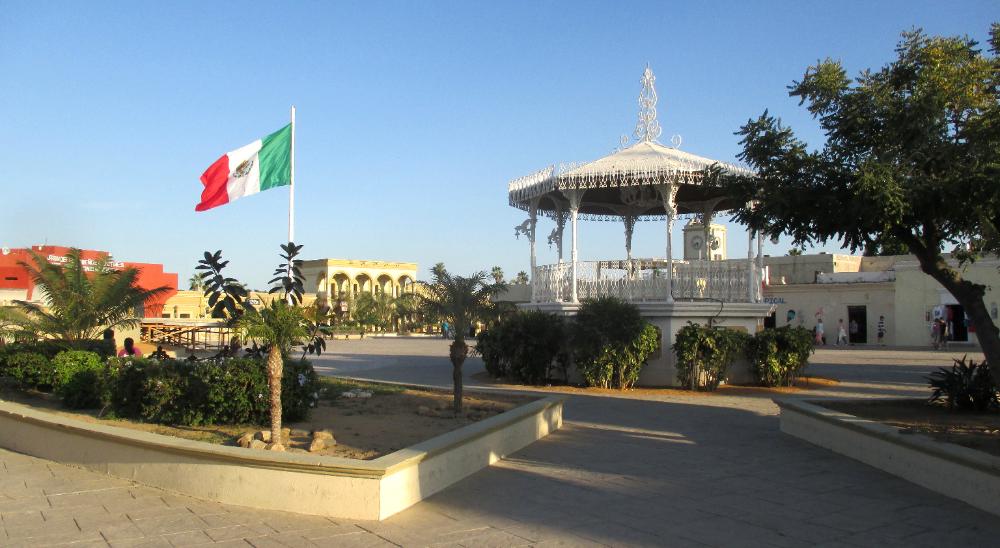
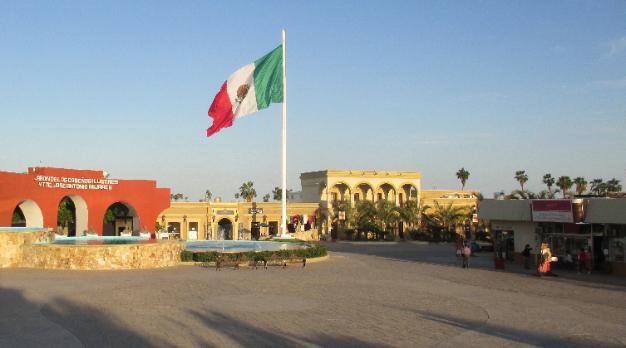
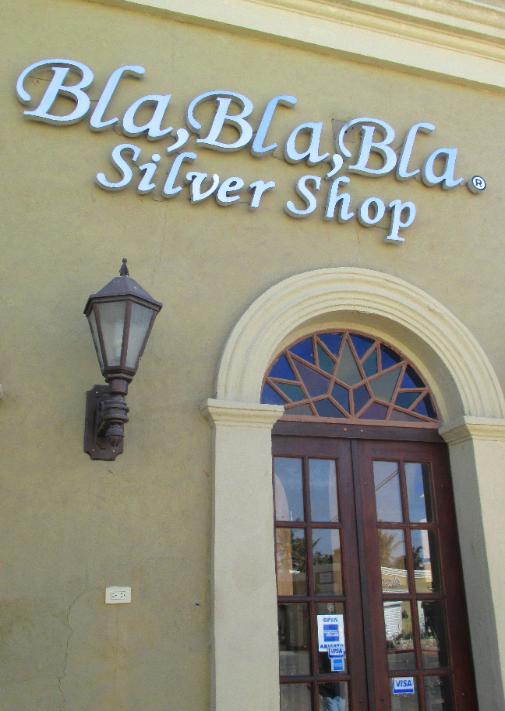
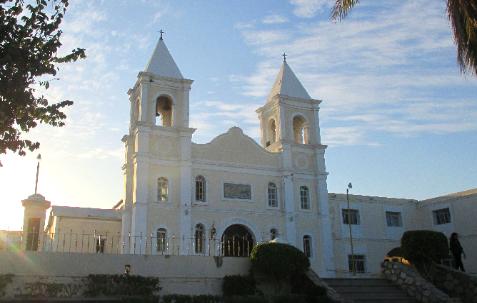
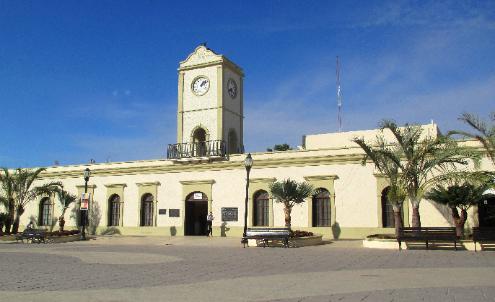
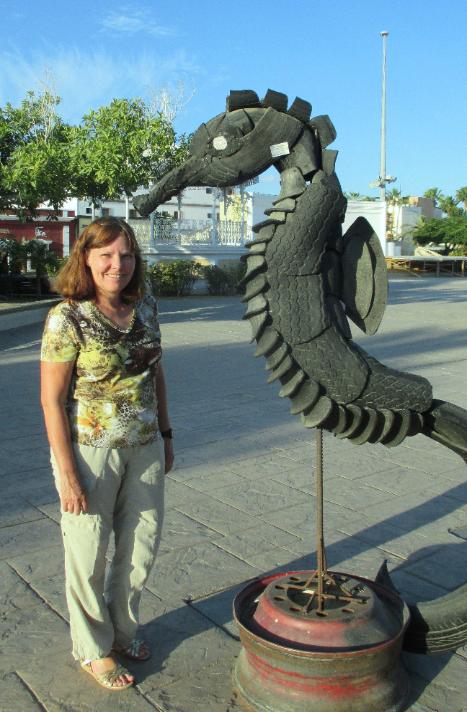
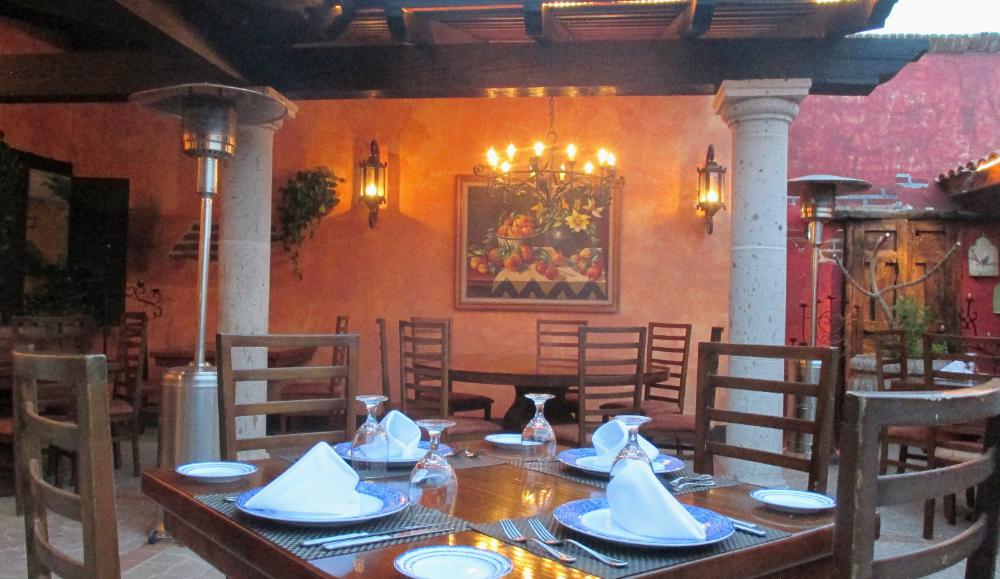
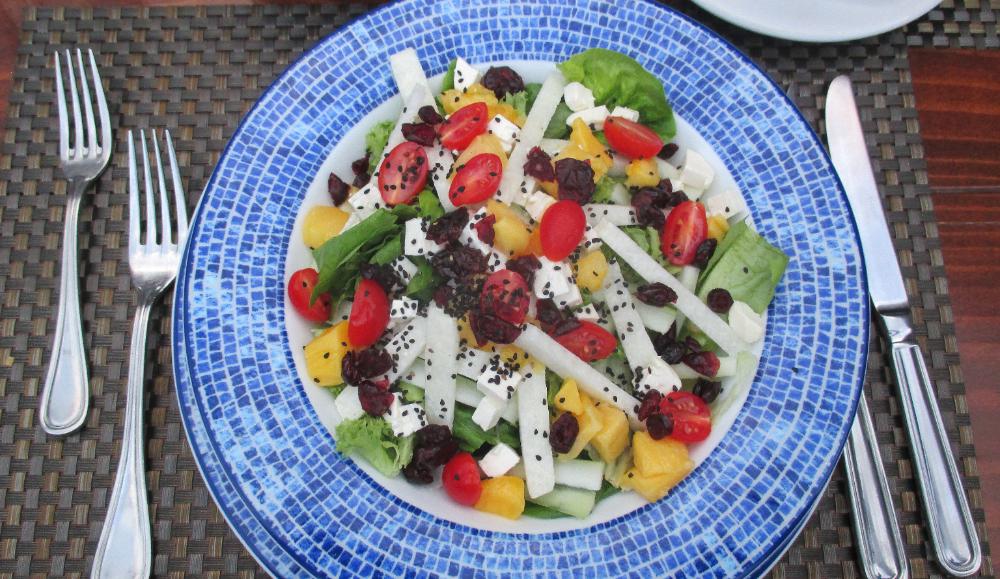
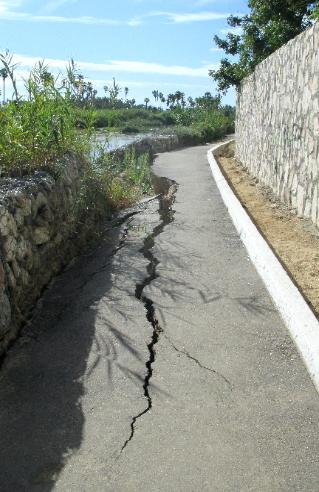
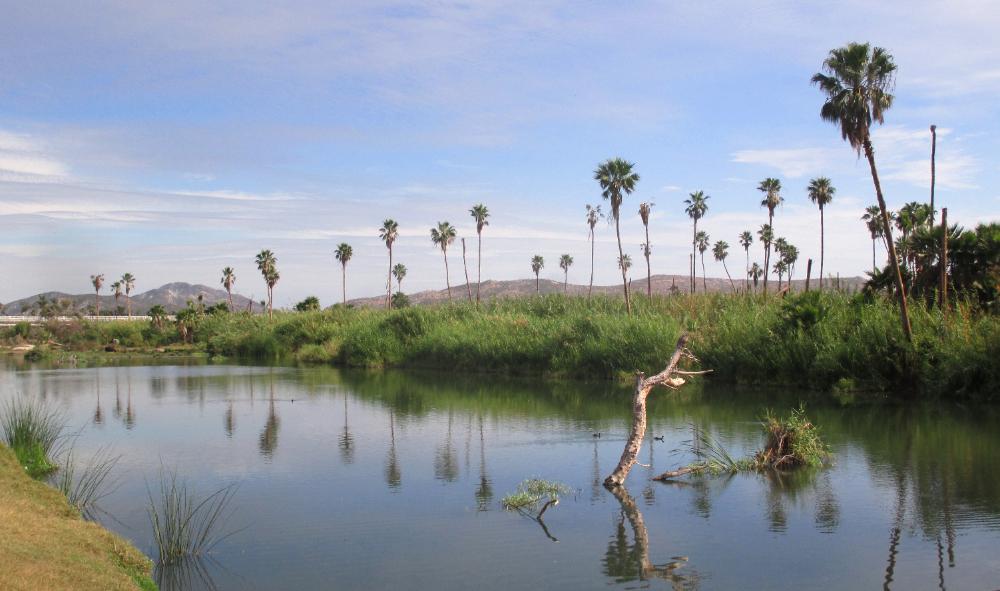
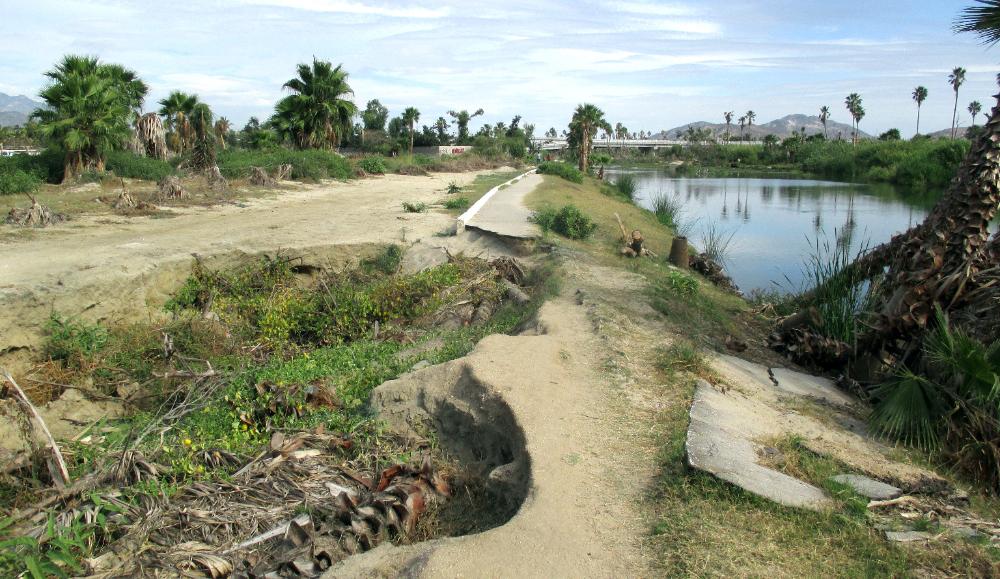
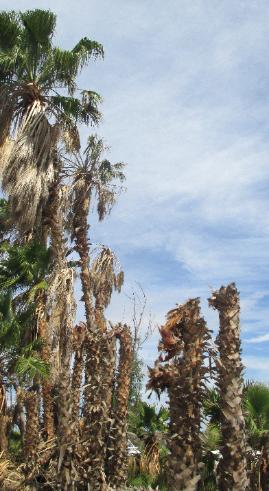
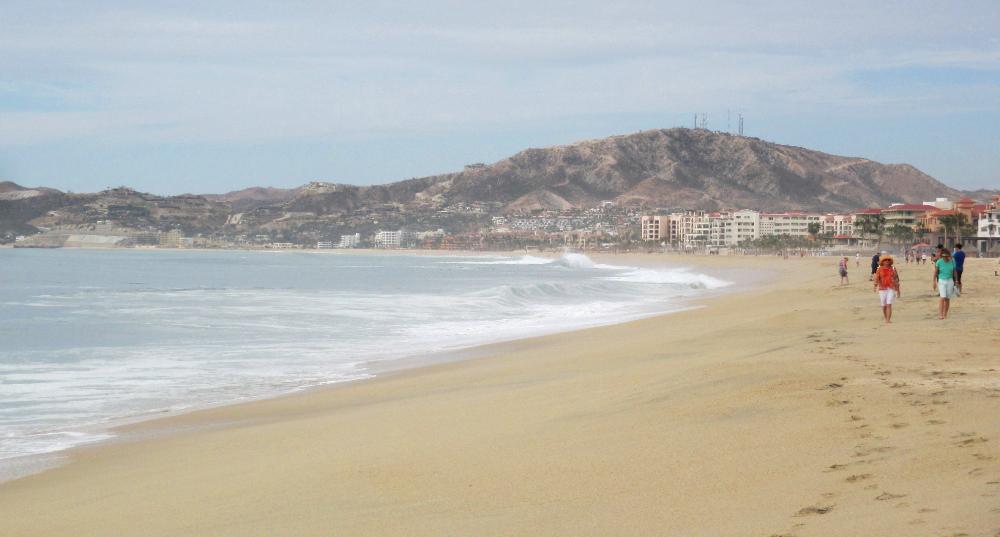
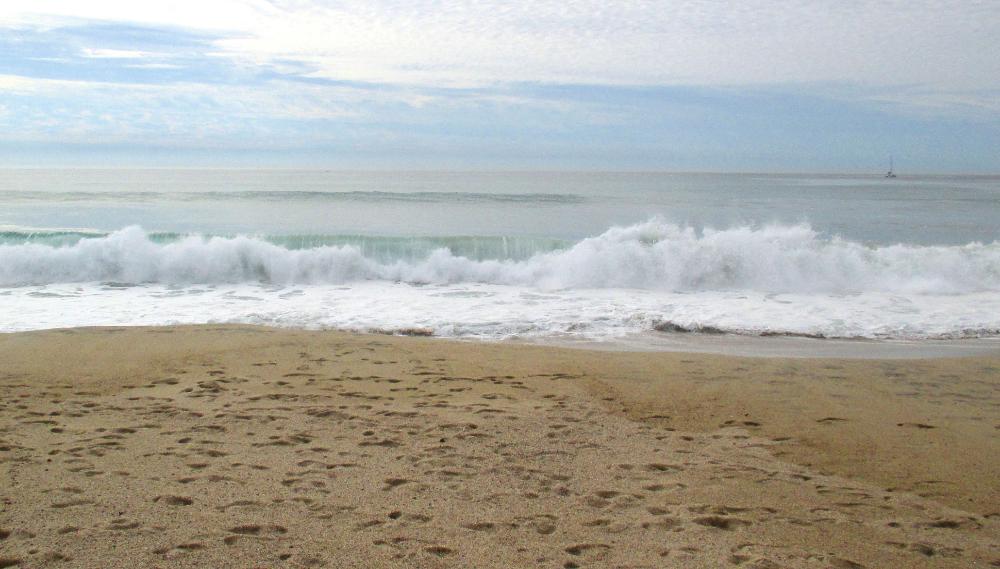
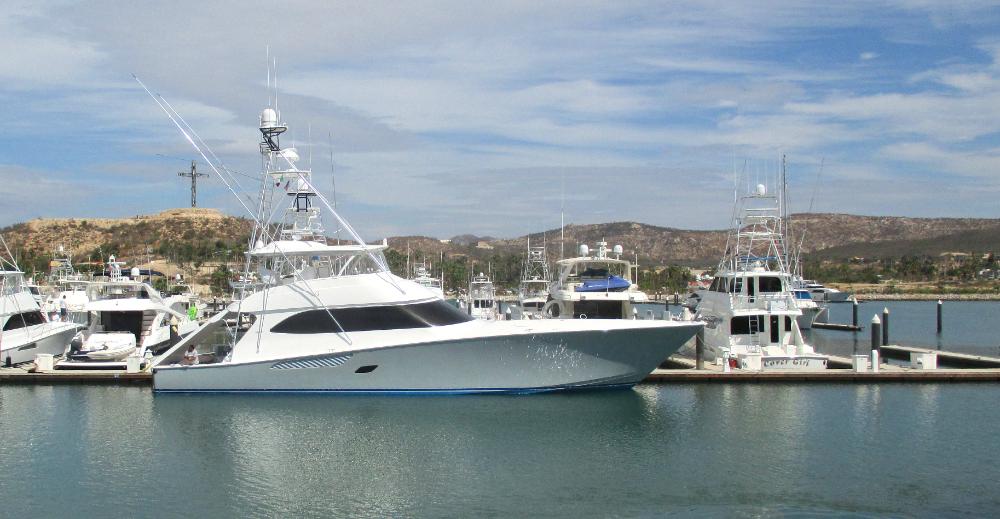
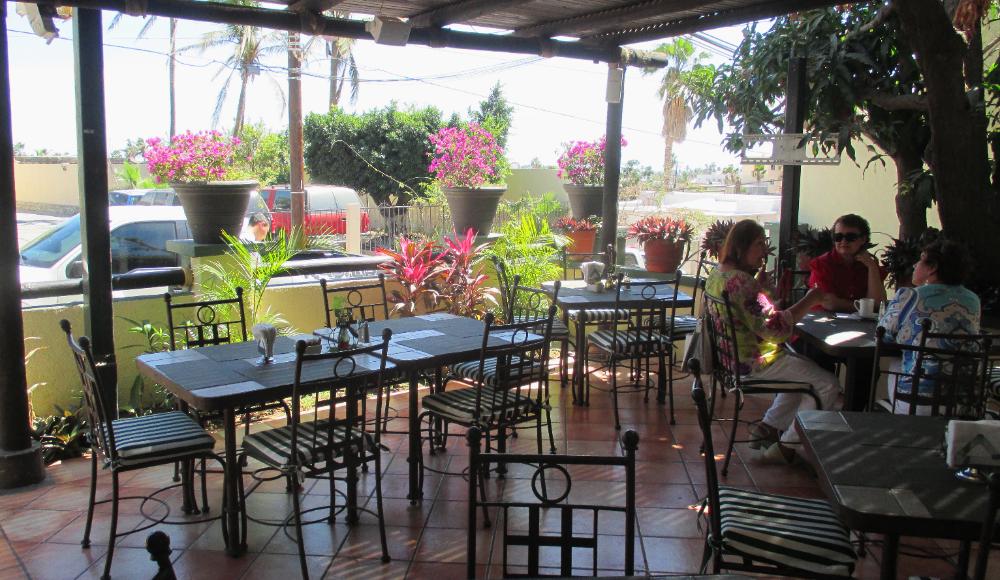
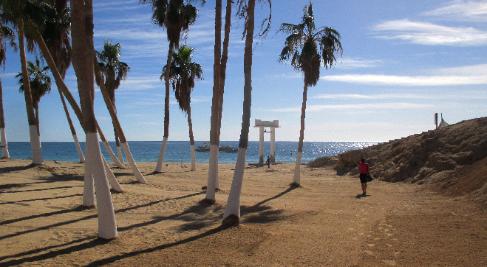
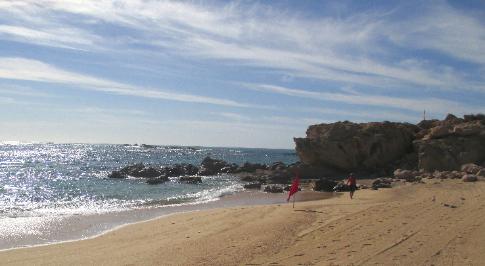
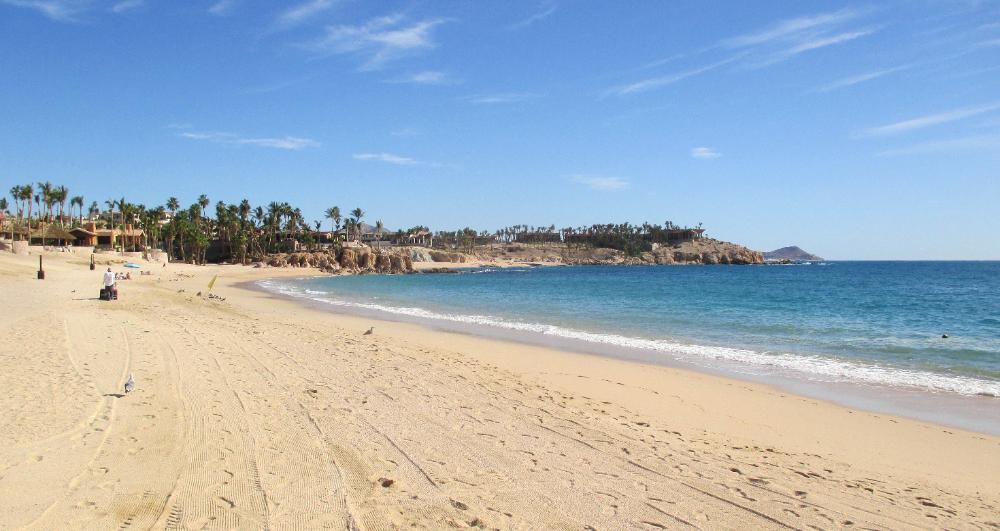
| San Jose del Cabo's central square forms the nexus of the historic district. All around it are upscale shops, art galleries, and restaurants. |
| San Jose del Cabo -- Baja, Mexico |
Cabo means end in Spanish, and by the time you
get to the two Cabos -- San Jose del Cabo and
Cabo San Lucas -- you've reached the far end of
the Baja peninsula and have gone as far south
as you can go in a car. These two towns are
sometimes called "Los Cabos" because they're
only 30 minutes apart and joined by a resort
corridor. San Jose del Cabo is definitely the
more tranquil of the two. Its historic center is
filled with art galleries, boutique shops, and
restaurants. Most tourists either stay in the
historic center, as we did, or at the luxury
beachfront resorts on the edge of town.
The tourist corridor still (thankfully) includes a
few undeveloped beaches. Our favorite is
Chileno Beach. The exit is unsigned so look for
the 15 km marker. Snorkeling near the rocks is
excellent and it's a pleasant place to come for a
beach day. Bring whatever you need as there
are no amenities other than porta-potties.
get to the two Cabos -- San Jose del Cabo and
Cabo San Lucas -- you've reached the far end of
the Baja peninsula and have gone as far south
as you can go in a car. These two towns are
sometimes called "Los Cabos" because they're
only 30 minutes apart and joined by a resort
corridor. San Jose del Cabo is definitely the
more tranquil of the two. Its historic center is
filled with art galleries, boutique shops, and
restaurants. Most tourists either stay in the
historic center, as we did, or at the luxury
beachfront resorts on the edge of town.
The tourist corridor still (thankfully) includes a
few undeveloped beaches. Our favorite is
Chileno Beach. The exit is unsigned so look for
the 15 km marker. Snorkeling near the rocks is
excellent and it's a pleasant place to come for a
beach day. Bring whatever you need as there
are no amenities other than porta-potties.
| The central square is unmissable with its huge Mexican flag. A white gazebo, a few colorful buildings, and a mission at one end add interest. |
| Parishioners were singing hyms during our visit. The city's 18th-century Spanish colonial architecture is a treat. |
| Our thoughts exactly! All kidding aside, this is a great shopping town, especially for fine art, jewelry, and Mexican handicrafts. |
| Fine dining at restaurants like Meson del Angel is definitely a highlight of any visit to San Jose del Cabo |
| We loved Meson del Angel's salads, including the Diego Rivera with organic lettuce, jicama, mango, tomato, and fresh cheese topped with a red chile vinaigrette |
| The Estuary Trail is another feature of the city. It offers a pleasant stroll that leads from the town to the beach. |
| Parts of the trail were heavily damaged by Hurricane Odile in September 2014. Odile was the most intense tropical cyclone ever to make landfall on the Baja peninsula. |
| Six months later there are still huge cracks in the concrete and sheered-off palm trees. Nevertheless, the walk along the estuary is pleasant despite the damage, and the hurricane appears to have had little effect on the abundant bird life. |
| At the end of the estuary trail we continued on to the beach. Here we discovered a long stretch of all-inclusive resorts with pools, swim-up bars, upscale restaurants -- and lots of gringos. Clearly this is the way most U.S. travelers like to experience Mexico! The beach is open to all, so you can visit it even if you're not staying at one of the resorts. |
| We loved listening to the huge waves crashing against the shore -- they sounded almost like crackling gunshots or thunder. Red flags were posted and no one was in the water except a lone surfer. |
| We continued along the beach all the way to the marina with its luxury yachts. It was a looooong walk there and back to the city. Later we realized the local map we were using was not to scale. But hey, it was a great three hours of exercise. |
| We recharged our batteries back at our hotel's outdoor terrace, where we noshed on machaca burritos with refried beans and guacamole. We loved the Posada Terranova's location near the heart of the historic and art district. |
| For a terrific day trip from either San Juan del Cabo or Cabo San Lucas, visit Chileno Beach. The snorkeling is great near the rocks on the righthand side (above right). |
| Chileno Beach is #6 on Trip Advisor's "Things to Do" list for the Baja peninsula. Located between the two Cabos at kilometer marker 15, it offers a quiet escape from the hustle and bustle of Los Cabos. |
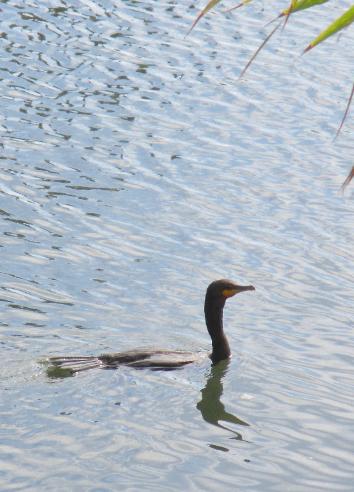
| The main plaza is at the heart of the Art District. Sculptures and art installations abound. |
| Nearby is the historic town hall, which includes the mayor's office |